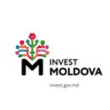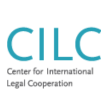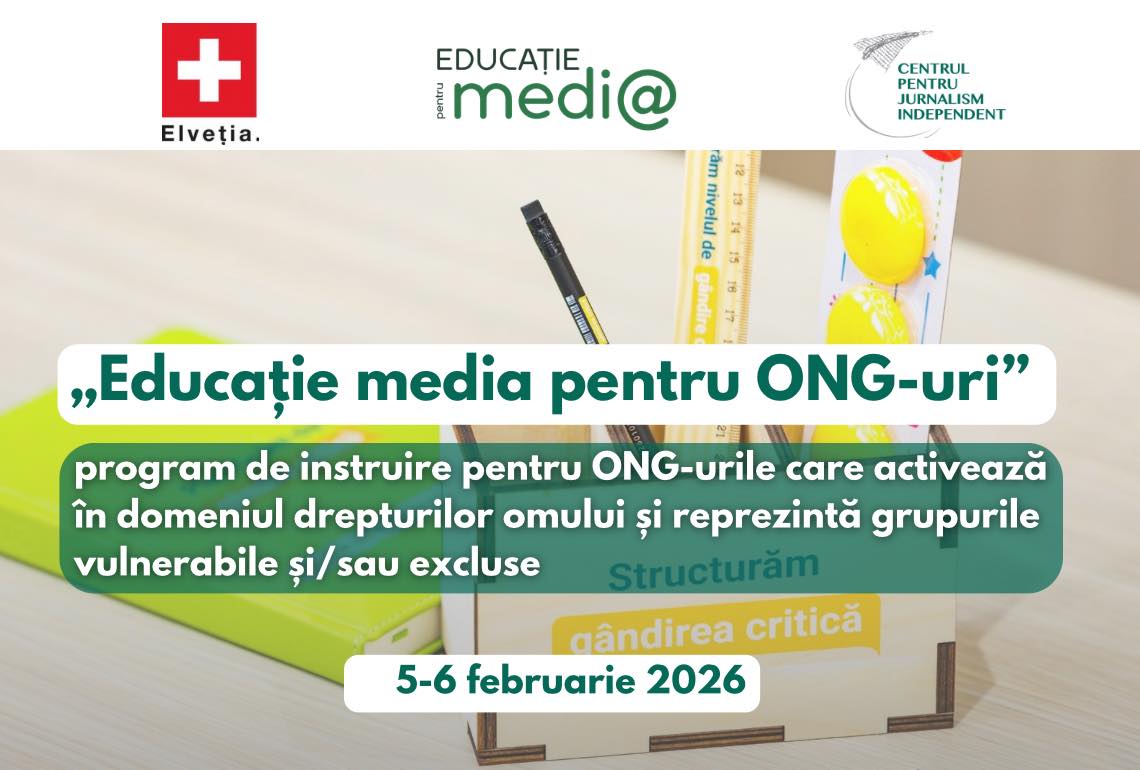Organizații vizate:
Anunțuri de Angajare
- Detalii
- Categorie: Angajări
CTWWC is hiring Regional Influence Advisor for Eastern Europe
Informațiile prezentate în articolul de mai jos pot să nu mai fie actuale sau să nu mai reflecte activitățile și programele curente. Anunțul este păstrat în arhivă pentru a asigura transparența și accesul public la informațiile despre inițiativele și proiectele implementate anterior.
Consultancy Title: Regional Influence Advisor for Eastern Europe
Location: Moldova based or Remote with travel
Duration: June – September 30, 2023
Number of days: 42
Background
- Context
CTWWC has been implementing a country demonstration program for care reform in Moldova since FY19, supporting the government of Moldova to complete child protection and care reforms and ensure that the children remaining in residential care are supported to live in families within their own communities. In line with the CTWWC Theory of Change, CTWWC now seeks to engage with the surrounding region to share out learning from the demonstration work in Moldova and contribute to influencing care reform within the region.
Countries across Eastern Europe have seen significant reforms in care systems over the past 15 to 20 years. The former Soviet Union countries inherited a legacy of extensive child institutionalization, however, since the fall of the USSR, hundreds of large residential care facilities for children have closed and been replaced with family care across Eastern Europe and Central Asia. By 2018, family-based care had grown in many countries; in Romania, Bulgaria, Latvia, Lithuania, Hungary, Serbia, and Moldova, the number of children without parental care growing up in foster and kinship families exceeded the number of children living in institutions.[1] The support of the European Union as part of the EU accession process has been a significant driver for care reform in the region. Social welfare sector reform is also underway in many countries of central and eastern Europe. This is particularly relevant to care reform, as increasing attention paid to developing preventive family and community-based programs, in coordination with health and education programs, can provide an important range of support to vulnerable families.
Many of the larger care reform sector leaders got their start in the region and continue to work across many countries, as well as in regional advocacy. These include Hope and Homes for Children and Lumos. The work gave rise to a number of coalitions including BCN Netherlands, EuroChild, Family for Every Child and others. Expertise abounds at country and regional level. Despite significant progress in care reform in the region, numerous challenges persist. Residential care in many of the countries in the region remains high, particularly in the form of small group homes and smaller types of residential models. Today, Europe and Central Asia have the second highest number of children living in institutions in the world, estimated at over one million.[2] Care reform advocates in the region also point to the need to look at institutional and residential care reform in many western European countries. The main challenges identified by CTWWC are:
- Disproportionate number of children with disabilities and children from marginalized groups in residential care. Groups such as the Roma and others in residential care is a serious concern, as is the placement of children under 3 years of age in some countries.
- Social service workforce for children and families lacks capacity, and stronger case management tools and guidelines, social work standards and updated social work curricula to reflect child protection and care.
- Need for continued development of family strengthening and prevention services, including:
- Insufficient support to parents and caregivers of children with disabilities to reduce the risk of placement in residential care.
- Insufficient scaling of models of family support and access to those services for all families.
- Support services for foster families are rare or lacking in many countries; often the allowances provided for children do not cover their basic needs. Furthermore, in many instances foster care becomes a permanent solution rather than temporary.
- Insufficient funding for children’s care systems and blurred lines of responsibility for provision of services in many countries – between government and non-government.
- Lack of engagement of some key actors, such as faith-based communities in child and family issues.
In addition, the war in Ukraine started by Russia in early 2022 has created a major ongoing humanitarian crisis in the region – testing already fragile child protection and care systems. The significant influx of refugees into neighbouring host countries, including children from institutions in Ukraine, has strained national child protection systems and impacted the capacity to provide support to host and refugee populations alike.
- Opportunities for engagement
CTWWC´s regional influence activities in Eastern Europe will be planned in close coordination with the CRS Europe Middle East and Central Asia (EMECA) regional office and other activities of child protection and care being undertaken by Maestral in the region. CRS is currently developing its own broader strategy for development and humanitarian assistance in the region. CTWWC has an important opportunity to influence this strategy, to provide recommendations for integrating family care into other CRS programs throughout the region, and to strengthen the capacity of CRS partners in the region. The regional influence work should also link closely to the CTWWC Moldova learning agenda’s activities and products to maximize synergies. In addition, the regional advisor should seek opportunities to promote greater engagement and participation by actors in the region, including CTWWC MD´s implementing partners, with the global care reform sector, particularly the Transforming Children’s Care Global Collaborative Platform.
CTWWC Moldova will host a conference on public financing for social services in early summer 2023, to address the constraints on care reform resulting from adequate public financing. The conclusions of this conference will also provide an important opportunity to engage with and influence governments and other actors in the region and globally on a critical aspect of care reform at a time when the gaps in country care systems have been made more evident by the Ukraine crisis. The conference has the potential to help CTWWC strengthen collaboration and sharing in the region around other critical aspects of care reform, including the Collective Impact approach, foster care, social service workforce development, prevention of child-family separation, faith engagement and The CTWWC ILE team has begun to engage with Eurochild and Lumos around the work on public finance for care reform in Eastern Europe and has invited Moldovan civil society organizations to contribute to the UNGA thematic brief on family reintegration.
The Ukraine humanitarian response by multiple countries in the region also presents an opportunity for CTWWC to strengthen and build on existing efforts and commitments to reform care systems in those countries. This should also build on the learning and influence efforts of CTWWC related to the Ukraine response, including the Learning Event organized last September by BCN under the auspices of the Ukraine Children’s Care Group to better understand the foster care systems and services in Ukraine and neighboring countries hosting Ukrainian refugee children, and the publication of a thematic brief by BCN on ‘Addressing the Need for Foster Care in the Context of the Ukraine Crisis’ in November 2022.
The CTWWC team in Moldova includes strong and experienced partner organizations. The regional influence advisor should seek opportunities to share learning around models of care, case management, family strengthening, etc. from the Moldovan context, that could be of benefit to this population of families and children. Opportunities for peer exchange and learning within the region should also be thoroughly explored.
Despite the fact that Catholics are a minority in the region, diocesan Caritas programs have played an important role in responding to the Ukraine refugee crisis in much of the region, providing integrated social services to children and families. Even before the crisis, Caritas programs in the region have provided funding and program support for evolving social services and, in some cases, residential care. Strengthening the capacity of Caritas programs in the region to provide more and higher quality family strengthening services would benefit not only the Ukraine refugee population, but host country populations as well, and ensure Caritas can promote best practices in child care system reform. Preliminary conversations between CTWWC and Caritas Europa about building the capacity of its members to implement family strengthening approaches in the region were held prior to the invasion of Ukraine. In 2018 and 2019, CTWWC connected with several European offices of Caritas and began discussions on keeping regular communication. Caritas Moldova was one of the organizations that CTWWC connected with early in the launch of the initiative. CTWWC will continue to explore this possibility in coordination with the CRS EMECA regional office. Linkages will be also made between this work and the recently developed Moldova faith engagement strategy.
Finally, opportunities to link CTWWC MD’s engagement with people with lived experience with other experiences in the region will also be explored, including opportunities to support regional advocacy efforts of care-experienced youth, young adults, and caregivers. CRS’ preliminary discussions about engaging with the European Union’s Youth Action Plan may contribute in this respect.
The EE Regional Influence Advisor will work with the CTWWC Global ILE Director to implement the following activities in Quarters 2-4 FY23. Technical support will be accessible from either the Senior Technical Advisor or the Technical Director, both of whom have extensive experience in the region. Travel may be required.
Proposed FY23 Activities
|
Area of work |
Specific Activities |
Deliverables |
Dates |
No of days |
|
|
1. |
Documentation of Moldova demonstration learning and care reform journey
|
§ Work with CTWWC Moldova program director, and ILE Director and with technical advisors to determine if there are priority influence countries and audiences for FY23 § Research/ explore the priority audience's knowledge, skills and gaps in order to determine most relevant learning products for sharing at a regional level. § Review Moldova´s learning packages and materials to determine relevance for targeted governments in the region and adapt as needed § Draft a proposed dissemination plan for sharing learning products § Compile internal and external resources describing Moldova’s care reform journey § Prepare a first draft of a brief describing Moldova’s care reform journey, with a focus on how the process was carried out and what learnings are relevant for other countries with similar contexts in Eastern Europe and possibly Central Asia. § Gather feedback from peer review process and prepare a final draft of the brief for publication § Identify at least one possible champion from MD government and/or other stakeholders to mentor and train to participate in at least one influence activity at the regional level in FY23.
|
1. Meeting notes 2. Adapted learning materials 3. Proposed dissemination plan 4. Brief describing the Moldovan care reform journey, possibly a video/documentary
|
June – September 2023 |
28 |
|
2. |
§ Participate in the Moldova Public Financing for Better Care conference § Draft a report of the conference for sharing regionally and globally, circulate for peer review and finalize § Design a webinar for presenting the findings of the Moldova conference with a regional/global audience (with support of ILE D) |
Meeting notes Draft conference report/final report Webinar presentation |
June -September June-July July |
4 10 |
|
|
Total 42 Working Days |
|||||
[1] The Opening Doors for Europe’s Children Campaign. 2020. “Lessons Learned and Recommendations to Strengthen Families and End Institutionalization for Children in Europe.” January 2020, https://www.openingdoors.eu/wp-content/uploads/2020/01/OD-lessons-learned.pdf
[2] Desmond, C., K. Watt, A. Saha, J. Huang, and C. Lu. 2020. “Prevalence and Number of Children Living in Institutional Care: global, Regional, and Country Estimates.” The Lancet. Child & Adolescent Health 4 (5):370–7. doi: https://doi.org/10.1016/S2352-4642(20)30022-5.
Interested candidates are invited to send their CV's and financial offers on e-mail adress: procurementMD@crs.org no later than 31'st May, 2023, 16:00 local time.
Contact person: Alexandru Dobrovolschi
e-mail: alexandru.dobrovolschi@crs.org
Phone: +373 68058325
- Fundația pentru Dezvoltare din Moldova angajează Coordonator/Coordonatoare de proiect
- Instituția Publică Centrul Național pentru Energie Durabilă anunță concurs pentru funcția vacantă de specialist principal, Direcția juridică și achiziții
- General Survey Corporation SRL (București) angajează Project Manager Tehnic – Geodezie / Cadastru
- Agenția de Guvernare Electronică relansează concursul de angajare pentru suplinirea postului vacant de Dezvoltator software (Kotlin developer)
- Societatea de Cruce Roșie din Moldova angajează Medic (pentru Caravana de sănătate)
Angajări pe Telegram
Nu pierdeți niciun anunț de angajare postat pe site! Urmăriți Canalul dedicat pe Telegram:

Top organizatii
- Delegația Uniunii Europene (UE)
- Ambasada SUA
- Fundatia Soros-Moldova
- Centrul pentru Jurnalism Independent (CJI)
- Asociația Promo-LEX
- Fundatia Est-Europeană
- Asociatia Presei Independente (API)
- Institutul pentru Politici și Reforme Europene (IPRE)
- Deutsche Gesellschaft für Internationale Zusammenarbeit (GIZ)
- IDIS Viitorul
2025 CIVIC DIGITAL SOLUTIONS
Email: support@portal.civic.md









